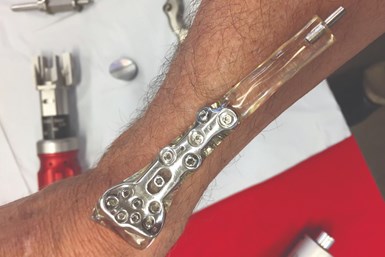What Makes a Production Machining Shop a Production Machining Shop?
A production machining shop is one that makes the things that give us the highest standard of living and safety, and quality of life.
Most folks know what it takes to assemble a car, but have no idea of the level of sophistication needed to convert raw materials into parts precise to ten thousandths of an inch (about 1/30 of the thickness of a sheet of ordinary paper.)
Here are a few thought starters to help you recognize if your shop is a production machining shop.
They are all about Production. Not just making one or two pieces to fix something, production machining shops typically have batch sizes in the thousands or tens of thousands. The parts that they make go into products, and so are produced in high volumes. Millions of parts per year going into consumer goods is a clue that you are a production machining shop. We produce to serve many customers.
They are all about Quality. Not just getting close to size but actually within statistically defined limits of the tolerance defined. Typically, that thickness of a sheet of paper is considered a relatively “normal” tolerance to achieve.

They are all about Safety. Safety for themselves, for their performers and for their customers. Many of our parts are essential components in human safety-critical applications, anti-lock brake parts, airbag and automotive passive restraint systems and ventilators for health care, as well as drug delivery and testing. Our performers safely deploy high voltages, high torque, high horsepower and high pressures to achieve their engineering goals. Protect the customer, protect the performer. These six words are our way of life.
They are all about Customer Service. The production machining shop recognizes that every print coming in is a dream — a desire — for a customer, but not every dream is achievable. However, using our engineering ability, manufacturing experience and the knowledge of our performers, true production machining shops get to yes even when the dream, on first glance, seems out of reach.
They are all about being Competitive on Price. Just because the parts we make are critical to the function of that car, truck, airplane or medical device doesn’t mean that they don’t have to be economical and affordable. Someone somewhere will get to the price needed and the quality. So, production machining shops work smart so they can price smart — and customers can have the improved quality of life that they desire.
They are all about Sharing. In PMPA, our production machining member companies routinely share special tools, gages and materials with other members to ensure that the customer gets their parts in spec and on time. Why do we share? Because it keeps manufacturing here in North America. Because we know that the next time maybe we will have the urgent need. Because it doesn’t cost us to sustain our industry — it pays.
They all have a Special Capability. Special capability gives them a competitive advantage. Maybe it is the process knowledge of their operators or of their engineers. Or the special techniques that they developed to… shhhh!
They are all about Courage. Or is it confidence? The order comes in and the contract and terms are agreed upon. They have the courage (confidence) to commit and make it so. The difference between knowing we can and committing to doing it is an important difference between shops that aspire and production machining shops that deliver.
Production machining is built on commitment and character because all of us in the world deserve brakes that work. Safety devices that don’t fail. And that requires production machinists to make them.
They are all endowed with Great Imaginations. In geometry, we were all taught about the three dimensions of the world X, Y and Z. Many of our shops are using equipment with five or more axes of tool movement. Imagine an 11-axis machine. Production machining shops not only imagine it, but they also recognize the need for 11 axes when they see the drawing!
They are all endowed with Great Imaginations — Part 2. Of course, you can go out and spend half a million dollars on a new machine to make a particular feature on a particular part. In many situations, as technology progresses, that is the right decision. But, sometimes, successful production machining shops imagine a way to do what is needed with the tools, technology and talent that they already have.
They are Not Easily Discouraged. In the latest challenge of COVID-19 lockdowns, our production machining shops knew that they were essential — they were manufacturing lifesaving medical parts needed to respond to the crisis. Our shops kept employees employed. They quoted, engineered, produced and shipped lifesaving parts in record time.
They are Not Easily Discouraged — Part 2. Remember the Great Recession back in 2008-2009? Many of our production machining shops were not only working but they were advertising for employees at that time. Production machining shops are essential manufacturers employing essential workers.
They have Integrity. They say what they will do and then they do it. Production machining shops produce large quantities of valuable, high precision components. To do this, they purchase large quantities of materials, find specialized tools and deploy the talents of skilled professionals. They put systems in place to ensure that the customer gets what they ordered, with the quality that they ordered, in the quantity that they ordered and by the date that they wanted it in their hands. Production machining shops invest the needed funds to acquire what is needed to produce. They are committed to serving the customer because the customer is the reason that we exist. Without customers, we would have no parts to make.

They are Pragmatic, Stoic and Optimistic. Production machining shops understand that, while the economy might be in a recession, they still have bills to pay, employees’ families depending on their income and challenges outside of their control. Shops understand that while they cannot fix the economy, the new regulations or whatever, they can control their response to the challenge to achieve the best outcome with the resources and people at hand. And, despite the gravity of the present circumstance, they recognize that those that went before them faced similar challenges and yet found a way to keep the operations running, invest in new technology and train new performers to become the process experts in their field.
What Makes a Production Machining Shop a Production Machining Shop?
I’ll wager that many of you would have thought I’d say something about types of equipment, tooling, software, specialized metalworking fluids, quality systems, markets and market segments. Those are all characteristics that can help us define our shops as production machining shops. But what makes our shops production machining shops, as this list has shown, is character. The character of our leaders. The commitment of our leaders to our customers, to our performers, to our suppliers, to our communities where we create jobs and to keeping North American manufacturing (and North American manufacturers like us) competitive and sustainable. The character of our performers to come in to work, to take the customer call and to get the tools right before committing to production.
You can use a lot of adjectives to describe our industry. The U.S. Census and BLS use a lot of numbers to describe our industry.
But if you want to know how I describe our production machining industry I use one word — character.
Because, every time a car goes or stops, the skill and discipline of a precision machinist is there. The knowledge of a precision toolmaker has helped to make that happen. The commitment of the steel or other material company to make a material that meets specification is demonstrated. Every time the brake lights flash and the auto stops and no one is hurt.
Production machining is essential manufacturing. Production because we make things in large volumes — there are a lot of customers to serve. Machining because humanity has developed societies built on communication, transportation, health care, utilities and appliances that give our families an enviable quality of life. Production machining is built on commitment and character because all of us in the world deserve brakes that work. Safety devices that don’t fail. And that requires production machinists to make them.
Read More Articles from PMPA:
-
How Emotional Intelligence Helps Sustain a Workforce — Part 1
- Steel Defects Seams on Rolled Steel Products
About the Author
Miles Free III
Miles Free III is the PMPA Director of Industry Affairs with over 40 years of experience in the areas of manufacturing, quality, and steelmaking. He helps answer “How?, “With what?” and “Really?” Miles’ blog is at pmpaspeakingofprecision.com; email – mfree@pmpa.org; website – pmpa.org
Related Content
Craftsman Cribsheet No. 128: Why Do Machinists Say Tenths Instead of Ten Thousandths?
In machinist parlance, a tenth is a tenth of a thousandth, not a tenth of an inch.
Read MoreCraftsman Cribsheet No. 129: How to Beat the Heat
Shops tend to heat up in the summer. Here are some tips for staying cool in the warmer months.
Read MoreCraftsman Cribsheet No. 121: ISO Turning — What Does it All Mean?
How to make sense of all those different letters and numbers in ISO turning inserts.
Read MorePrecision Ground Barstock: How It Is Manufactured, Benefits to Your Shop
Understanding the benefits provided by precision centerless ground barstock can help you avoid false economy and optimize the work you quote by maximizing benefits to your manufacturing process and customer.
Read MoreRead Next
A Tooling Workshop Worth a Visit
Marubeni Citizen-Cincom’s tooling and accessory workshop offers a chance to learn more about ancillary devices that can boost machining efficiency and capability.
Read MoreDo You Have Single Points of Failure?
Plans need to be in place before a catastrophic event occurs.
Read More5 Aspects of PMTS I Appreciate
The three-day edition of the 2025 Precision Machining Technology Show kicks off at the start of April. I’ll be there, and here are some reasons why.
Read More











.jpg;maxWidth=300;quality=90)










